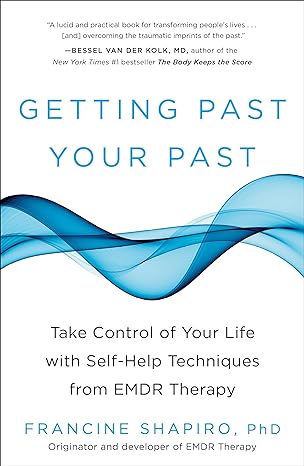— Joseph Campbell
Resources
EMDR
“The truth is we all suffer at one time or another. Situations arise all the time that affect us negatively. But when we continue to have pain long after the experience itself has passed, it is because the hardwiring of our brains influence our minds… Every experience we’ve had in our lives has become a building block in our inner world, governing our reactions to every thing and every person we encounter…
EMDR therapy targets the unprocessed memories that contain the negative emotions, sensations and beliefs. By activating the brain’s information processing system, the old memories can then be ‘digested.’ Meaning what is useful is learned, what’s useless is discarded, and the memory is now stored in a way that is no longer damaging.”

—Francine Shapiro, PhD. Author, Getting Past Your Past, Take Control of Your Life with Self Help Techniques from EMDR Therapy
Mindfulness
Peace is Every Step by Thich Nhat Hanh
Addiction
Beyond Addiction: How Science and Kindness Help People Change by Jeffrey Foote, PhD, Carrie Wilkens, PhD, and Nicole Kosanke, PhD with Stephanie Higgs
This Naked Mind: Control Alcohol Find Freedom, Discover Happiness and Change your Life by Annie Grace (plus, This Naked Mind Podcast)
Blackout: Remembering the Things I Drank to Forget by Sarah Hepola
It Will Never Happen to Me: Growing Up with Addiction as Youngsters, Adolescents, Adults by Claudia Black, PhD
Marriage and Relationship
The Seven Principles For Making Marriage Work, by John M. Gottman, PhD and Nan Silver
Trauma
A Practical Guide to Complex PTSD: Compassionate Strategies to Begin Healing from Childhood Trauma, by Arielle Schwartz, PhD
The Body Keeps the Score, by Bessel van der Kolk, MD

Office Location:
One West Water Street,
Suite 201
Wakefield, MA 01880